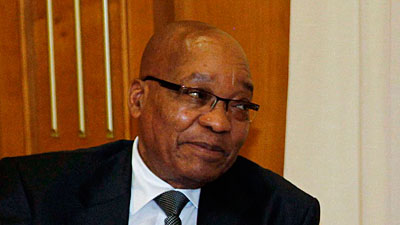With the Marikana tragedy fresh in people’s minds, the ANCYL calling for a new President and the ANC’s Mangaung elective conference looming, speculation has become rife that Jacob Zuma’s Presidency will finish at the end of his first term.
While firebrand Julius Malema seizes each and every opportunity to lambast the President he until recently vowed to die for, and with a media ready to jump onto stories of lewd paintings and marriages, it does indeed appear that Jacob Zuma is not a very popular President. Perhaps his career as ANC President and, therefore, South Africa’s next President – a miracle in voting behaviour notwithstanding – will come to an end in Mangaung.
Recent media articles suggest that young voters are turning away from Zuma. A recent TNS survey states that Mothlante is the preferred choice for voters. What is not mentioned is that this is a survey held in urban, middle class environs. With the middle class estimated at about 20% of population according to recent calculations by the African Development Bank, the TNS survey can’t be called representative. The Pondering Panda Zuma-and-youth survey can hardly be called representative either as it collects its data via internet surveys, for which you need a computer and internet access; middle class amenities.
In the survey Jacob Zuma garnered a 66% percent approval rating, and 63% of South Africans say they trust him somewhat or a lot
An Afrobarometer survey conducted by IDASA in 2011, however, interviewed a sample of 2399 adult South Africans from all nine provinces with an error margin of only 2%. The results have been bundled in several papers, one of which covers “public attitudes towards the President of the Republic of South Africa.” Although the data was collected some time ago, well before the Marikana tragedy, the outcomes should still be of interest.
In the survey, Jacob Zuma garnered a 66% percent approval rating, and 63% of South Africans say they trust him somewhat or a lot.
So, it may be too early to conclude that Zuma will not be nominated party President in Mangaung. But perhaps more interestingly, how do we then understand the gap between these outcomes and the negative perceptions that seem alive amongst segments of our society?
Not only does the Afrobarometer survey indicates differences in perception between different provinces, levels of education and age groups, the survey states that “those who feel most marginalised and disaffected from society and therefore least optimistic, and who are also least likely to take part in civic activity, also feel most disaffected and dissatisfied with their government, including its current leader.”
Those dissatisfied with our current leadership “appear to come from different communities and different socio-economic strata. Indeed, more affluent South Africans seem particularly passive on … citizen engagement.” Affluent South Africans? The elites such as business, academia, media, and more.
This may then explain why Zuma is not as unpopular as some tend to think. As a city dweller with a job, access to internet and newspapers one may be excused for thinking that Jacob Zuma is on a slippery slope to one-term-presidency. Or are these merely the opinions of a civically inactive, politically marginalised and dissatisfied elite?
Olmo von Meijenfeldt is Idasa’s External Relations Manager. This opinion piece has been written in his personal capacity.
To read the Afrobarometer paper entitled Public Attitudes Towards the President of the Republic of South Africa, Jacob Zuma click on the following links.
http://www.idasa.org/ http://www.afrobarometer.org/
– By COMMENT: Olmo von Meijenfeldt, Idasa’s External Relations Manager


